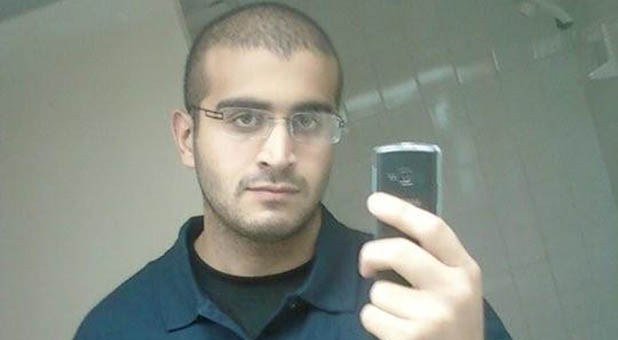House Intel Committee Member: ‘I’d Be Shocked’
U.S. Rep. Chris Stewart (R-Utah), a member of the House Select Committee on Intelligence, discussed the Orlando attack during Tuesday’s episode of the nationally syndicated Hugh Hewitt Show.
Hewitt asked the congressman, based on his briefings, if he felt the U.S. was “fully in the game.” He asked Stewart if he felt the nation’s technological outreach is “adequate to the task,” particularly in light of the revelation that the FBI had investigated the murderer, Omar Mateen, twice and each time concluded he wasn’t a threat.
“We’re going to learn so much over the next few days, and we’ve learned quite a lot already,” the congressman said. “I mean, I can say that this individual didn’t wake up on Friday morning and radicalize himself in 24 hours. It’s a much longer process than that.
“Speaking of myself, I’ll be shocked if there weren’t others involve with this. I’ll be even more surprised if there weren’t some people around him that weren’t, to some level, aware of his intentions and could have warned us. And once again, what type of communications did he have with these individuals and perhaps others overseas? There’s a lot to learn.”
Returning to Hewitt’s question, however, Stewart said the simple answer is “no,” the U.S. isn’t where it needs to be to deal with the existing threat. He said, however, he didn’t want to “blame the FBI,” because they face “an enormous challenge” with hundreds of potential threats to continuously monitor.
“You can’t arrest someone because you’re suspicious of their activities, and no one would suggest that,” he said. “But as I said, it’s an enormous challenge for them as they try with these two conflicting values—keeping us safe while at the same time protecting Constitutional liberties that actually matter.”
Hewitt went back to Stewart’s statement about Mateen having assistance to carry out his attack. He asked the congressman to specify what kind of involvement that would entail.
“Well, any or all or some of those things,” he responded. “Again, we just don’t know. But the radicalization is something that you know, again, it doesn’t happen overnight.
“Now if someone, as you said, is deranged, has mental health issues, there’s evidence of that, generally. But the position that I’m taking on this is that someone doesn’t wake up and have this type of evil intent without that emerging over time, and generally being fostered by someone.”
Stewart reminded Hewitt he had to be careful with the intelligence information he has been provided as part of his briefings. However, he reiterated his belief that it would be surprising to those on the House Intelligence Committee if Mateen’s radicalization didn’t happen over the lengthy period of time, and that others were involved in recruiting, training, and soliciting his help.
Earlier in the interview, Stewart told Hewitt he thinks many Americans are beginning to become more aware of the threat posed by radical Islam in the U.S. But, he also noted there are many others who still want to “stick their head in the sand.”
“For Heaven’s sakes, this is not about gun control,” he said. “As much as if you saw the demonstration in the House yesterday from the Democrats, this is not about gun control. This was Islamic terrorism. This is a terrorist attack.
“If you think that gun control is the answer, then tell me what happened in Belgium? Tell me what happened in Paris. They have some of the tightest gun control laws in the world. Tell me what happened in San Bernardino, that had some of the tightest gun control laws in the United States.
“To pretend to the American people that if we just passed a rule or a piece of legislation that tightened up gun control, that we would eliminate this problem, it’s fundamentally dishonest to present that to the American people as this is the solution. It’s just simply not true.”
Stewart said U.S. Sen. Diane Feinstein’s bill to prohibit gun sales to those who are on the no-fly terror watch list “deeply flawed.” He noted another member of Congress was on the list and didn’t even know about it, which exposed the inherent secrecy of the no-fly list.
“I think that there’s a process we could use to help those who are mentally ill, that our society has been negligent or incapable at this point of helping in a real reasonable way those who might be inclined towards this type of violence,” he said. “I agree with that. But the watch list, and then taking away the right to bear arms, isn’t the answer to that. It’s got to be something more detailed that gives people a chance to know they’re on the watch list, and to be able to respond and reply to that.”
Stewart also railed against President Obama, who he said fails to understand, and lacks the willingness to engage the problems presented by ISIS.
“[D]oes anyone believe any longer that as long as ISIS exists that we won’t continue to have these attacks?” he asked. “Because I simply don’t believe that. As long as ISIS exists as it does, and is as powerful and as growing as they are, how long will it be until we have another attack like this here in the United States?
“And we’ve got to have leadership that’s willing to actually confront them, and to confine them, and to destroy them. And we just haven’t had that type of commitment from our executive, yet.”
















































